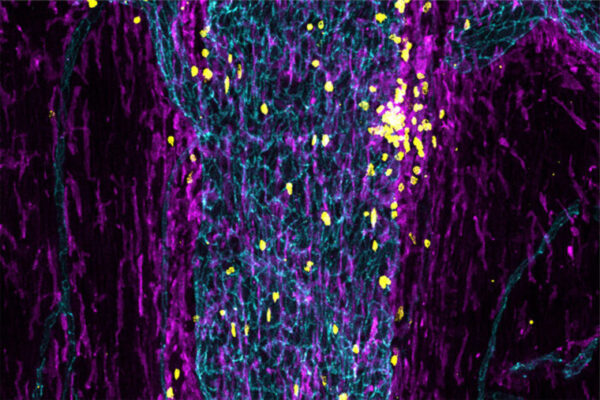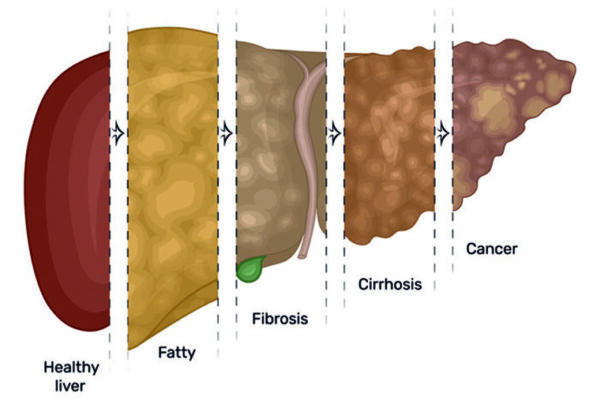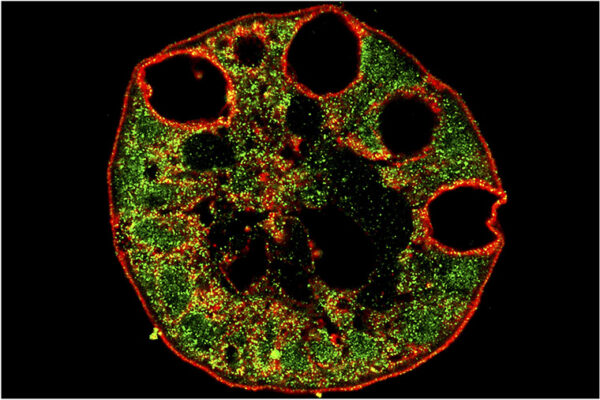Risk analysis helps contend with uncertainty of in-person activities
People now have access to better real-time information about COVID-19 infection and transmission rates, but they still have to decide what is safe to do. A new model co-authored by mathematician John McCarthy in Arts & Sciences at Washington University in St. Louis helps to contend with the uncertainty.
‘Smart’ cartilage cells programmed to release drugs when stressed
Researchers at Washington University School of Medicine have engineered cartilage cells to release an anti-inflammatory drug in response to stresses such cells undergo when they are compressed during weight bearing and movement.
How does the immune system keep tabs on the brain?
Researchers at Washington University School of Medicine have found that immune cells stationed in such sinuses monitor the brain and initiate an immune response if they detect a problem.
Nixing bone cancer fuel supply offers new treatment approach, mouse study suggests
A new study from Washington University School of Medicine suggests that a two-drug combination targeting a tumor’s energy sources could be as effective and less toxic than methotrexate, a long-used chemotherapy drug often given in high doses to treat osteosarcoma, a bone cancer.
Kinch receives grant for clinical data work
Michael S. Kinch, associate vice chancellor and director of the Centers for Research Innovation in Biotechnology and Drug Discovery, and professor of biochemistry and molecular biophysics at the School of Medicine,, received a one-year $280,385 grant from Arnold Ventures for his research titled “CDEK: Clinical Data Experience Knowledge-base.”
Holehouse receives grant for protein analysis
Alex Holehouse, assistant professor of biochemistry and molecular biophysics at the School of Medicine, received a one-year $91,539 grant from Dewpoint Therapeutics for his research titled “Bioinformatic tools for the analysis of phase separating proteins.”
Imaging agent may help gauge kidney health
Researchers at Washington University School of Medicine have developed an imaging agent that could help refine assessments of kidney health, potentially salvaging some otherwise discarded donor kidneys.
No more needles?
WashU engineers have developed a biosensing microneedle patch that can be applied to the skin, capture a biomarker and, thanks to its unprecedented sensitivity, allow clinicians to detect the biomarker’s presence.
Study reveals links between fatty liver disease, liver cancer
Researchers at Washington University School of Medicine in St. Louis have found that a protein involved in regulating lipid levels in the liver and blood also promotes development and progression of fatty liver disease and liver cancer in mice.
For some, GI tract may be vulnerable to COVID-19 infection
Researchers at Washington University School of Medicine in St. Louis have found that patients with Barrett’s esophagus may be vulnerable to coronavirus infection from what they swallow.
Older Stories









